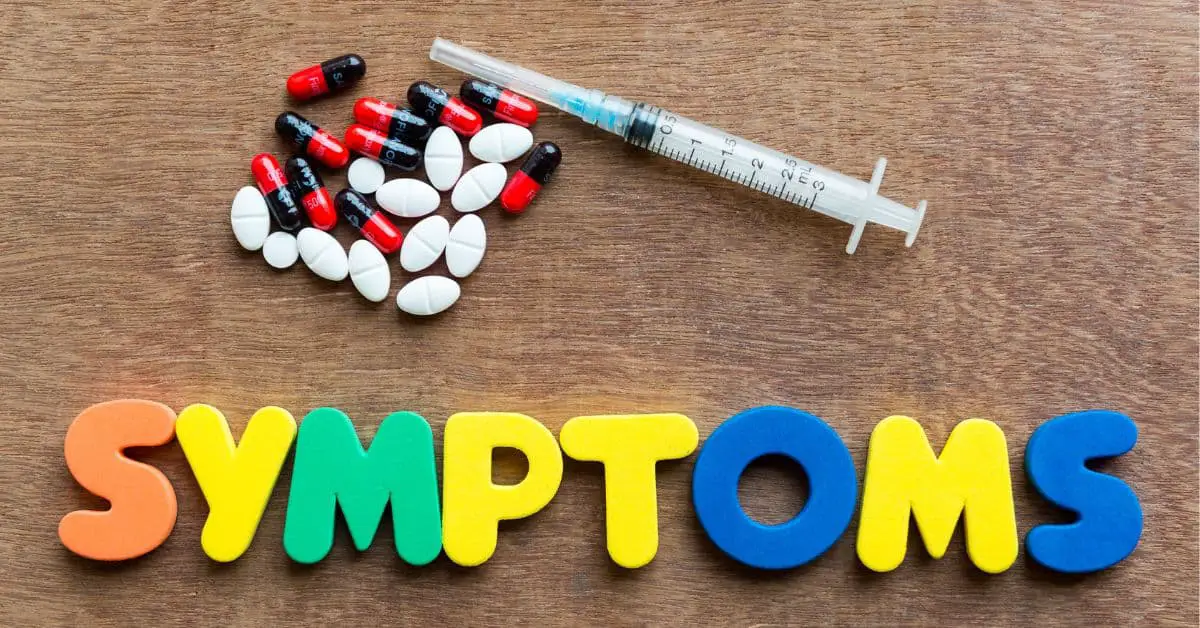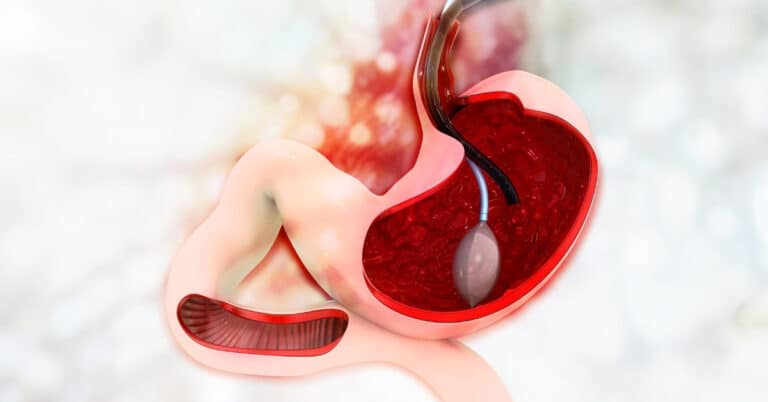Is Bloating A Sign Of Pregnancy? What You Need To Know
If you’re experiencing bloating and wondering if it could be a sign of pregnancy, you’re not alone. Bloating is a common symptom of pregnancy, but it’s not a definitive sign on its own. There are several other early signs of pregnancy that you may experience along with bloating.
Understanding what bloating is and what causes it can help you determine whether it’s a sign of pregnancy or something else. Bloating occurs when your abdomen feels full, tight, or distended. It’s often caused by excess gas in your digestive system, but it can also be caused by hormonal changes, such as those that occur during pregnancy. In some cases, bloating can be a sign of a more serious condition, so it’s important to pay attention to any other symptoms you may be experiencing.
Key Takeaways
- Bloating is a common symptom of pregnancy, but it’s not a definitive sign on its own.
- There are several other early signs of pregnancy that you may experience along with bloating.
- If you’re experiencing bloating and other symptoms of pregnancy, it’s important to take a pregnancy test and seek medical attention if necessary.
Understanding Bloating
What is Bloating
Bloating is a common condition that many people experience at some point in their lives. It is a feeling of fullness or tightness in the stomach, often accompanied by gas or abdominal distension. Bloating can be uncomfortable and even painful, but it is usually not a serious medical condition.
Causes of Bloating
Bloating can be caused by a variety of factors, including gas, water, fiber, and certain foods. Gas in the digestive tract can cause bloating and discomfort, especially if it is not expelled through burping or flatulence. Water retention can also cause bloating, particularly during menstruation or pregnancy.
Fiber-rich foods, such as beans and whole grains, can cause bloating if they are not consumed in moderation. Carbonated beverages can also contribute to bloating, as can dietary changes and certain medications. Lack of physical activity or exercise can also cause bloating, as can certain medical conditions.
In summary, bloating can be caused by a variety of factors, including gas, water, fiber, and certain foods. It is a common condition that is usually not a serious medical condition. By understanding the causes of bloating, you can take steps to prevent or alleviate this uncomfortable condition.
Bloating as a Sign of Pregnancy
If you’re experiencing bloating, you might be wondering if it’s a sign of pregnancy. Bloating is a common symptom of pregnancy, but it’s not a surefire sign on its own. Here’s what you need to know about bloating and pregnancy.
Bloating in Early Pregnancy
Bloating can be an early sign of pregnancy. In fact, it’s one of the most common symptoms. Bloating in early pregnancy is caused by hormonal changes, specifically an increase in the hormone progesterone. This hormone causes the muscles in your digestive tract to relax, which can slow down digestion and lead to bloating.
Bloating in early pregnancy can also be caused by the hormone human chorionic gonadotropin (hCG). This hormone is produced by the placenta after the fertilized egg implants in the uterus. hCG can cause bloating and other symptoms like nausea, vomiting, and breast tenderness.
Bloating During Pregnancy
Bloating can also be a symptom of pregnancy throughout the entire term. As your uterus expands to accommodate your growing baby, it can put pressure on your digestive system and cause bloating. This can be especially noticeable in the second and third trimesters.
Additionally, constipation is a common problem during pregnancy, which can also lead to bloating. The hormone progesterone can slow down digestion and cause constipation, which can make you feel even more bloated.
It’s important to note that bloating alone is not a reliable sign of pregnancy. Other symptoms like a missed period, implantation bleeding, and positive pregnancy tests are more definitive signs. If you’re experiencing bloating and other symptoms of pregnancy, it’s important to take a pregnancy test and talk to your healthcare provider.
In summary, bloating can be a sign of pregnancy, but it’s not a definitive sign on its own. Bloating in early pregnancy is caused by hormonal changes, while bloating during pregnancy is caused by the expanding uterus and constipation. If you’re experiencing bloating and other symptoms of pregnancy, it’s important to take a pregnancy test and talk to your healthcare provider.
Other Early Signs of Pregnancy
In addition to bloating, there are several other early signs of pregnancy that you may experience. These signs can vary from woman to woman but are generally caused by hormonal changes in your body.
Nausea and Vomiting
Nausea and vomiting, commonly known as morning sickness, is a common early sign of pregnancy. It typically occurs during the first trimester and is caused by the sudden increase in hormones in your body. While it is called morning sickness, it can happen at any time of the day.
Fatigue
Feeling tired and fatigued is another common early sign of pregnancy. This is also caused by the hormonal changes in your body. You may find yourself needing to take naps during the day or feeling exhausted even after a full night’s sleep.
Breast Changes
Your breasts may also undergo changes during early pregnancy. They may become swollen, sore, or tender to the touch. Your nipples may also become more sensitive. These changes are also caused by hormonal fluctuations.
Spotting
Some women may experience light spotting during early pregnancy. This is caused by the implantation of the fertilized egg into the lining of the uterus. It is usually light and only lasts for a few days.
Increased Urination
You may find yourself needing to urinate more frequently during early pregnancy. This is caused by the increased blood flow to your kidneys and the pressure of the growing uterus on your bladder.
Mood Swings
Hormonal changes can also cause mood swings during early pregnancy. You may find yourself feeling more emotional than usual or experiencing sudden mood changes.
Food Cravings and Aversions
Many women experience food cravings and aversions during early pregnancy. You may suddenly find yourself craving foods that you never used to like or feeling repulsed by foods that you used to enjoy.
Other Early Signs of Pregnancy
Other early signs of pregnancy include constipation, cramping, heartburn, irregular periods, smell sensitivity, and swollen ankles and feet. If you suspect that you may be pregnant, it is important to take a pregnancy test and consult with your healthcare provider.
Pregnancy Tests
If you suspect that you may be pregnant, taking a pregnancy test is the most reliable way to confirm your pregnancy. There are different types of pregnancy tests available, and knowing when to take one can help ensure accurate results.
Types of Pregnancy Tests
There are two main types of pregnancy tests: urine tests and blood tests. Urine tests are the most commonly used type of pregnancy test, and they can be done at home or in a doctor’s office. These tests detect the presence of the hormone human chorionic gonadotropin (hCG) in your urine, which is produced by the placenta after a fertilized egg implants in the uterus.
Blood tests are more sensitive than urine tests and can detect pregnancy earlier. There are two types of blood tests: quantitative and qualitative. Quantitative blood tests measure the exact amount of hCG in your blood, while qualitative blood tests simply detect the presence of hCG.
When to Take a Pregnancy Test
The timing of your pregnancy test can affect its accuracy. Most home pregnancy tests claim to be accurate as early as the first day of your missed period, but false negatives are possible during the first few weeks of pregnancy. In general, it’s best to wait at least a week after your missed period to take a pregnancy test for the most accurate results.
If you’re unsure when to take a pregnancy test, consult with your healthcare provider. They can help you determine the best time to take a test based on your individual circumstances.
Remember, a negative pregnancy test doesn’t always mean you’re not pregnant. If you have a negative result but still suspect you may be pregnant, wait a few days and take another test. If you continue to have symptoms of pregnancy or miss your period, contact your healthcare provider for further evaluation.
Managing Bloating in Pregnancy
Bloating is a common symptom during pregnancy, but it can be managed with a few simple changes to your diet and physical activity.
Dietary Changes
Eating small, frequent meals throughout the day can help prevent bloating. It’s also important to avoid foods that are known to cause bloating, such as beans, broccoli, cabbage, and onions. Instead, focus on eating foods that are rich in fiber, such as fruits, vegetables, and whole grains.
Probiotics can also be helpful in managing bloating during pregnancy. These live bacteria can help regulate your digestive system, reducing the likelihood of bloating and other gastrointestinal symptoms. Yogurt, kefir, and other fermented foods are all good sources of probiotics.
It’s also important to pay attention to your overall nutrition during pregnancy. Eating a balanced diet that’s rich in vitamins and minerals can help support your overall health and reduce the likelihood of bloating.
Physical Activity
Regular physical activity can also help manage bloating during pregnancy. Exercise can help regulate your digestive system, reducing the likelihood of bloating and other gastrointestinal symptoms.
Low-impact exercises such as walking, swimming, and prenatal yoga are all safe and effective ways to stay active during pregnancy. It’s important to talk to your healthcare provider before beginning any new exercise routine, especially if you have any underlying health conditions.
In conclusion, bloating is a common symptom during pregnancy, but it can be managed with a few simple changes to your diet and physical activity. Eating small, frequent meals, avoiding foods that are known to cause bloating, and focusing on overall nutrition can all help reduce the likelihood of bloating. Regular physical activity, such as walking, swimming, and prenatal yoga, can also help regulate your digestive system and reduce bloating.
When to Seek Medical Attention
If you are experiencing bloating and suspect you may be pregnant, it is important to seek medical attention. While bloating is a common symptom of early pregnancy, it can also be a sign of other medical conditions.
If your bloating is accompanied by severe pain or bleeding, seek medical attention immediately. These could be signs of a miscarriage or an ectopic pregnancy, which can be life-threatening if left untreated.
Fluid retention during pregnancy can also cause bloating, but if you notice sudden weight gain or swelling in your hands or face, it could be a sign of preeclampsia, a serious pregnancy complication that can lead to high blood pressure and damage to your organs. Call your healthcare provider immediately if you experience any of these symptoms.
Persistent vomiting, diarrhea, or signs of dehydration can also be a cause for concern during pregnancy, as they can lead to complications such as anemia or preterm labor. If you are unable to keep fluids down or notice a decrease in fetal movement, seek medical attention right away.
Your healthcare provider may recommend an ultrasound to check for any underlying medical conditions that could be causing your bloating. They may also monitor your blood pressure and check for signs of anemia or backaches, which can be common during pregnancy.
It is important to listen to your body and seek medical attention if you experience any concerning symptoms during pregnancy. Your healthcare provider can help ensure a safe and healthy pregnancy for you and your baby.
Maintaining a Healthy Pregnancy
Maintaining a healthy pregnancy is essential for the well-being of both you and your baby. Here are some tips to ensure that you have a healthy pregnancy:
Prenatal Care
Prenatal care is crucial for a healthy pregnancy. You should schedule regular prenatal appointments with your healthcare provider to monitor your health and your baby’s development. During these appointments, your healthcare provider will perform routine tests and screenings to ensure that you and your baby are healthy.
Prenatal Vitamins
Taking prenatal vitamins is essential for a healthy pregnancy. Prenatal vitamins contain essential nutrients such as folic acid, iron, and calcium, which are necessary for the healthy development of your baby. You should take prenatal vitamins before and during pregnancy.
Healthy Pregnancy
Maintaining a healthy pregnancy involves eating a balanced diet, exercising regularly, and getting enough rest. You should avoid alcohol, drugs, and smoking during pregnancy. You should also avoid exposure to harmful chemicals and radiation.
Medications
If you are taking any medications, you should talk to your healthcare provider to ensure that they are safe to take during pregnancy. Some medications can harm your baby, so it is essential to discuss any medications with your healthcare provider.
Smoking
Smoking during pregnancy can harm your baby’s development and increase the risk of complications during pregnancy and childbirth. You should quit smoking before and during pregnancy.
Weight Loss
If you are overweight or obese, you should talk to your healthcare provider about safe ways to lose weight during pregnancy. Losing weight during pregnancy can reduce the risk of complications such as gestational diabetes and high blood pressure.
Breastfeeding
Breastfeeding provides many benefits for both you and your baby. Breast milk contains essential nutrients that can help your baby grow and develop. Breastfeeding can also reduce the risk of certain health conditions for both you and your baby.
Birth Defects
Some birth defects can be prevented by taking certain precautions during pregnancy. You should avoid exposure to harmful chemicals and radiation. You should also take prenatal vitamins and get regular prenatal care.
Birth Control Pills/Patches
If you are using birth control pills or patches, you should talk to your healthcare provider about safe ways to stop using them before trying to become pregnant. Some birth control methods can affect your fertility, so it is essential to discuss your options with your healthcare provider.
Frequently Asked Questions
Can bloating be an early sign of pregnancy?
Yes, bloating can be an early sign of pregnancy. During early pregnancy, the hormone progesterone increases to prepare the uterus for the growing fetus, which can cause bloating. In some cases, bloating can occur even before the first missed period.
What are some early signs of pregnancy besides bloating?
In addition to bloating, some early signs of pregnancy include nausea, fatigue, breast tenderness, mood swings, and light spotting. However, it’s important to note that not everyone experiences the same symptoms, and some women may not experience any symptoms at all.
How soon after conception can bloating start?
Bloating can start as early as a few days after conception. However, it’s important to note that everyone is different, and some women may not experience bloating until later in their pregnancy.
What is the difference between bloating in early pregnancy and PMS?
The difference between bloating in early pregnancy and PMS is that bloating in early pregnancy is typically more severe and lasts longer than bloating during PMS. Additionally, bloating during early pregnancy is often accompanied by other symptoms such as nausea and fatigue.
Is extreme bloating a common symptom of pregnancy?
While bloating is a common symptom of pregnancy, extreme bloating is not. If you are experiencing severe bloating, it’s important to speak with your healthcare provider to rule out any underlying medical conditions.
Are there any hidden signs of pregnancy that include bloating?
While bloating is a common sign of pregnancy, there are no hidden signs of pregnancy that specifically include bloating. However, if you suspect that you may be pregnant and are experiencing bloating, it’s important to take a pregnancy test and speak with your healthcare provider to confirm your pregnancy and ensure that you receive appropriate prenatal care.








